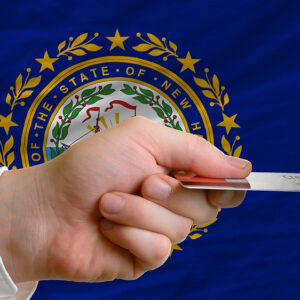Imagine that you want to start a small bakery in your town. You’ve developed a menu, found an open storefront, secured funding, and are ready to open when you discover that state law requires you to have a fax machine just in case one of your employees wants to use it. Of course, it being 2024, none of your employees have used a fax machine in over two decades. But a state law passed in the 1980s requires it.
Sounds far-fetched, doesn’t it? Well, while this example is made up, this is exactly what we are doing today with payroll services.
State law requires that employers must provide a paper check to employees. That doesn’t seem like a big deal until you break down the reality of the situation. About 94 percent of employees use direct deposit and have never even seen a paper check from their employers. The other 6 percent use some combination of cash, checks, or employee debit cards. For an employer to issue the very small amount of checks that are requested of them, they must create an entire infrastructure to issue those checks. Bank of America estimates this process costs between $4 – $20 per check that they cut, and the invaluable time spent ensuring that perhaps only one out of several hundreds of employees who choose to be paid this way can be. And because it is required of them, even if no employees request a paper check, the employer must be prepared for a request at any time.
Unlike in my example, the laws in question weren’t passed 40 years ago; rather, laws like this were passed throughout the nation over 100 years ago when our current technologies weren’t conceivable to the average New Hampshire legislator. Today, this is simply a needless mandate of a foregone era. Paper checks are a thing of the past. For younger workers, we live in a cashless society where pay is sent to their bank accounts, and payments are made by tapping an iPhone app. Even for older workers, the idea of driving to a bank to deposit a paper paycheck in person is simply unthinkable.
This session, I have proposed HB 1648 to modernize our payroll system. This bill would eliminate the requirement for paper paychecks. Instead, for that very small percentage of workers who are not paid by direct deposit or in cash, their pay would be transferred to an employee debit card. These cards would be electronically filled, just like a direct deposit to a bank account. They can be used to pay for goods and services, just like a debit card. And they can be used to withdraw cash from a bank or ATM, just like a bank card. This is more convenient for employees who no longer need to pick up their checks from work and more cost-effective for employers who no longer need to create an entire procedure for, at most, a handful of paper checks.
There have been several attempts to update the laws over the last few years, but each effort has been met with misinformation and misunderstanding of what is being accomplished. First and foremost, there is no requirement that employers do anything new. If employers want to issue paper checks, they are free to continue doing so. In fact, this legislation only removes a requirement from employers – that is that they provide a paper check when they do not want to. And second, there are no exorbitant fees associated with employee debit cards. There are absolutely no fees for a standard transaction or for a standard withdrawal of funds. The only time that fees are levied is in situations where similar fees apply to anyone. For example, using an out-of-network ATM or making transactions in a foreign country.
As New Hampshire legislators, we talk a lot about cutting red tape to help our small businesses. This bill is an example of a common sense measure that would have a very narrow but very real effect toward achieving that goal.
And those are the true fax.





